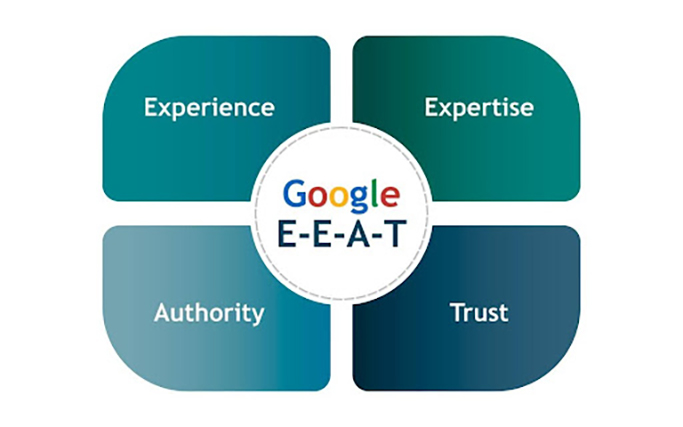What if I tell you that you had a potential weapon in one of your digital marketing arsenal (website) all the time, that could potentially outsmart Google’s AI search?
It’s called Cornerstone Content. And in the upcoming age of cornerstone content in AI search, this weapon will be your best defense against going invisible. With AI-generated results taking the center stage in search (even before we could wrap our heads around it), reshaping how information is discovered, summarized, and displayed is no longer just about having content. It’s about having the right kind of content.
Enter Cornerstone content, the unsung hero of SEO that’s suddenly becoming more significant than ever. In this blog, we’ll delve deep into how Google’s AI-powered search (especially SGE–Search Generative Experience) is fast changing the game, and whether cornerstone content still holds the key to top visibility in a world driven by AI.
What Is Cornerstone Content?
Before we get into Google’s AI and all that techie stuff, let’s figure out what cornerstone content actually means.
Cornerstone content refers to comprehensive, high-value, articles or landing pages on your site that explore core topics which are aligned much closer to your niche or business. These pillar content for SEO pages are the ones you want to rank the highest, which are often linked internally from other related articles, thereby indicating their significance.
Typical characteristics of cornerstone content:
- They are long-form and well-structured
- Often covers a broad topic in depth
- Content is regularly updated and maintained
- The page will be well interlinked within your site
- They often are a signal of authority, trust, and expertise
Think of it as your digital cornerstone—everything else on your site builds upon it.
Google’s AI-powered Search (SGE): A Paradigm Shift
Google Search Generative Experience (SGE) leverages generative AI to expertly summarize information from across the web, displaying it directly on the search results page; way before any links appear.
So instead of the usual scroll down of blue links, a user might see:
- A short and sweet AI-generated summary
- A list of relevant sources (usually 3-5)
- Follow-up questions with more AI responses
However, the big question is: How does Google decide which links to pull from when generating these summaries?
This is where cornerstone content becomes significant.
Is Google Prioritizing Cornerstone Content in AI Results?
While Google hasn’t explicitly stated anywhere that cornerstone content is given the preference in SGE results, several observations lay evidence as to why it is influential.
- Depth and Authority Are Key Signals
Google’s AI prioritizes content that demonstrates E-E-A-T (Experience, Expertise, Authoritativeness, Trustworthiness).
Cornerstone content, by design, ticks all these boxes:
- It’s often longer, deeper, and more accurate.
- It is a strong signal showing subject-matter expertise.
- It tends to get more internal and external links.
In SGE results, AI summaries often bring content from domains with strong, established pillar pages on the topic.
- Strong Interlinking Backs Content Hierarchies
Cornerstone content is typically strongly interlinked, thereby helping Google (and AI models) understand your site structure and topical authority.
What AI needs to generate good summaries is context, and when your cornerstone page is surrounded by a well-organized content cluster, it makes it easier for Google to recognize and trust the source.
- Content That Ranks Well, Gets Summarized More Often
Recent studies have shown that content already ranking in the top 10 positions is more likely to be shown in AI summaries. As cornerstone content is often optimized to rank well and is kept up to date, it’s normal to show up more in these AI-driven results.
In other words, ranking content is equal to AI-quoted content, and you can bet on cornerstone pages for high rankings.
What This Means for Your SEO Strategy
If you still haven’t invested in building out cornerstone content—or if yours is outdated—your brand will soon go obsolete.
Here’s how to optimize cornerstone content for AI search:
- Audit & Find Your Existing Cornerstones
Make use of popular tools like Google Search Console, Ahrefs, or SEMrush to find your most visited and linked-to pages. See if it answers the following:
- Are they relevant to your niche’s most important search queries?
- Do they deserve to be your cornerstone pages?
- Optimize for E-E-A-T Content
- Make sure to include author bios and credentials.
- In the content, cite credible sources and research.
- Include up-to-date facts related to the topic and real-world examples.
- The tone and language should have clarity that AI can easily summarize.
- Streamline Content for AI Readability
AI parses structured content more effectively. Therefore, use:
- H2/H3 subheadings
- Bullet points
- Tables and FAQs
- Rich snippets (schema markup)
- Fortify Your Internal Linking Strategy
Link all your supporting blogs and cluster topics back to your cornerstone page. Not only does this boost SEO, but it also helps Google’s AI contextualize your page’s relevance within your site ecosystem.
- Keep Your Cornerstone Pages Updated
Google loves freshness. So does AI. Ensure regular updating of cornerstone pages with:
- New and relevant statistics
- Fresh case studies or examples
- Up-to-date best practices
- Fix an audit schedule (quarterly/half-yearly) and refresh these core pages.
Real-world Example: How One Page Became an AI Magnet
A digital health brand refreshed their “Ultimate Guide to Telehealth Laws” as a cornerstone piece:
- 2,500+ words
- Timely legal updates
- Author: A certified health attorney
- Numerous internal backlinks
- AI-optimized content strategies that work with Google’s updates
- 20+ years of industry expertise in healthcare, legal, and tech
- Internal linking and cluster strategy built for improved AI visibility
- Pre-scheduled, timely content refresh cycles
- End-to-end AI SEO services, from content to code
Within months, it became a frequent citation in Google’s AI summaries around telemedicine compliance. Their traffic grew more than 50% quarter over quarter—without needing to write a single new blog.
Why You Should Work with MedResponsive for AI-first SEO
At MedResponsive, we understand that SEO is no longer tied to a bunch of keywords, and it’s about context, credibility, and AI-readiness. That’s why we have specialized in creating cornerstone content strategies aligned with how Google thinks today, and tomorrow.
Why Choose Us?
Final Thoughts
While Google hasn’t formally announced that cornerstone content is a ranking factor in AI search, the signals show it may indeed be. The pages that smartly blend authority, structure, depth, and freshness will rise to the top and often get featured in AI-generated answers.
If you want your brand to be found, cited, and build a solid reputation in this new search landscape, your cornerstone content can no longer be an afterthought.
Build it right and Google’s AI just might put your content where it matters the most.





